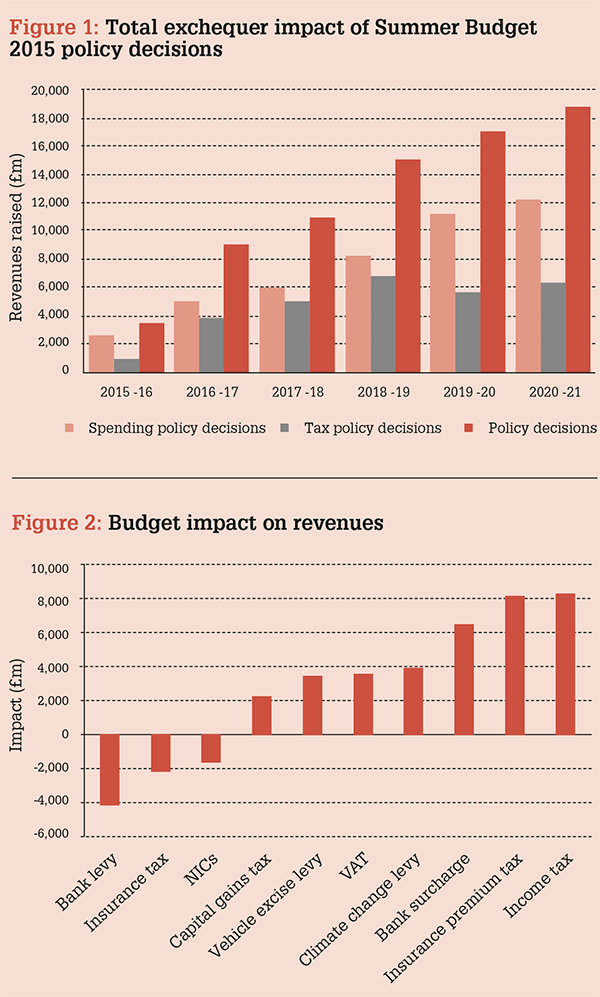 run up to 8 July wondering how the chancellor was going to pull off the usual post-election tax grab, having previously placed a lock on his main revenue levers, will have been taken aback by the breadth of George Osborne’s sweeping ‘one nation’ Budget. From further cuts on the corporation tax rate to deeper cuts in working age welfare benefits, the first Tory Budget for 18 years has gone for wide-ranging reform, but has also boosted the tax take to a remarkable extent.
run up to 8 July wondering how the chancellor was going to pull off the usual post-election tax grab, having previously placed a lock on his main revenue levers, will have been taken aback by the breadth of George Osborne’s sweeping ‘one nation’ Budget. From further cuts on the corporation tax rate to deeper cuts in working age welfare benefits, the first Tory Budget for 18 years has gone for wide-ranging reform, but has also boosted the tax take to a remarkable extent.
 run up to 8 July wondering how the chancellor was going to pull off the usual post-election tax grab, having previously placed a lock on his main revenue levers, will have been taken aback by the breadth of George Osborne’s sweeping ‘one nation’ Budget. From further cuts on the corporation tax rate to deeper cuts in working age welfare benefits, the first Tory Budget for 18 years has gone for wide-ranging reform, but has also boosted the tax take to a remarkable extent.
run up to 8 July wondering how the chancellor was going to pull off the usual post-election tax grab, having previously placed a lock on his main revenue levers, will have been taken aback by the breadth of George Osborne’s sweeping ‘one nation’ Budget. From further cuts on the corporation tax rate to deeper cuts in working age welfare benefits, the first Tory Budget for 18 years has gone for wide-ranging reform, but has also boosted the tax take to a remarkable extent.







